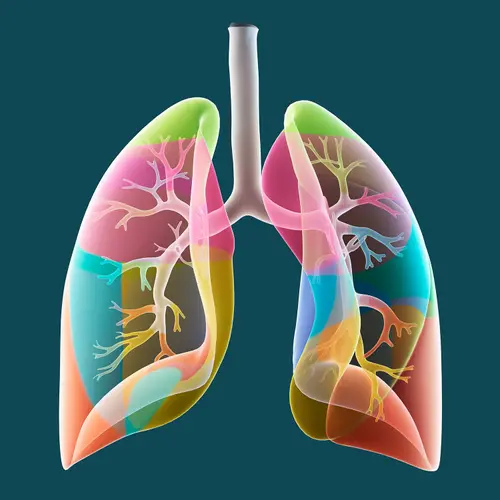If you have lung cancer, what you eat is key. But you should think about what to steer clear of, too. If you’re in treatment, certain foods can make side effects worse. And when your immune system is weakened, bacteria and other harmful germs that are common in some foods can hit you harder.
The good news is that it’s usually easy to spot foods that can be dodgy. Guidelines for things to limit or avoid are clear and simple to follow. You can sub in healthy choices along the way, too. This makes room for a nutritious and tailored diet, says Colleen Spees, PhD, associate professor in the Division of Medical Dietetics at The Ohio State University Medical Center in Columbus.
“This is the time to eat dietary patterns that support and maintain a healthy immune system,” she says.
At some point during treatment, almost 70% of people with lung cancer are malnourished. This happens when they don’t get the right amount or quality of nutrients or calories their bodies need. Of that large group, 35% are severely malnourished.
People who are malnourished have frequent treatment interruptions, need to go to the hospital more often, and have to stay in the hospital more, says Spees. They often have intestinal-related side effects from treatment, and they have a hard time doing the things they need or want to do. Over time, this means they may not respond to treatment well and have a lower quality of life. Their death rate is higher, too. Studies have shown that people who were malnourished were two to five times more likely to die than healthy patients.
Ease Discomfort and Cut Symptoms
If you’re well-nourished, you’ll have fewer nutrition-related treatment side effects like appetite loss, fatigue, or nausea, Spees says. She advises people with lung cancer to follow the American Cancer Society’s Eating Well During Treatment guidelines. Though your nutritional needs can vary over time, the basic rules -- like avoiding added sugar, sodium, and saturated fats -- still apply.
Things in your diet that often trigger side effects during lung cancer treatment include:
- Greasy, fried, or super-spicy foods, which can lead to nausea and diarrhea.
- Very hot -- temperature-wise -- foods and liquids. These can upset your stomach, too. The same is true of dairy products.
- Drinking a lot of caffeine. You lose fluids, which can cause constipation.
Avoid Foods That Can Tax Your Immune System
Cancer treatments, like chemotherapy, take a toll on your white blood cells, your body’s frontline fighters against infection. So the germs and bacteria common in some foods may find it easier to get into your system.
Most iffy foods have the same features: They might be raw, undercooked, or unpasteurized, meaning they haven’t been through a heating process that kills bacteria. They lurk where germs can sneak in: Think restaurant salad bars and store bulk food sections, where many hands are in and out.
It’s not hard to steer your cart or plate away from possibly harmful foods if you keep these tips in mind:
- Avoid the deli. Foods like cold cuts; uncooked, dry-cured salami; and premade meat salads can carry listeria bacteria, a culprit for food poisoning.
- Tread lightly around eggs. Unless they’re well-cooked, eggs -- even very fresh ones with clean shells -- might have salmonella, bacteria that cause thousands of food poisoning cases and a few dozen deaths every year. Don’t use eggs that aren’t refrigerated or that are cracked.Hold the orders for over-easy, poached, soft-boiled, and sunny side up. And steer clear of food that might have raw eggs, including Caesar salad dressing, smoothies, raw cookie dough, homemade mayo, and Hollandaise sauce.
- Don’t drink or eat raw milk or dairy products that aren’t pasteurized. This may include yogurt, soft cheeses such as Brie and feta, and Mexican-style cheeses like queso fresco or blanco. Raw milk can contain harmful bacteria including E. coli, listeria, and salmonella.
- Soft-serve yogurt and ice cream make the shady list, too. You can’t be sure what’s in them or if the machines are clean.
- Browse the bakery with care. Avoid anything cream- or custard-filled that’s not refrigerated.
- In the produce section, stroll past the fresh salad dressings, salsa, and so on. This is the time to stick to shelf-stable brands in the condiment aisle.
- Don’t eat raw vegetable sprouts, such as alfalfa, broccoli, or radish. Bacteria thrive in the moist, warm conditions where sprouts grow.
- Leafy greens might look fresh and pretty, but they can hide dirt under their large leaves. It’s best to clean thoroughly or to skip hard-to-clean produce for now.
- Also skip the sushi. Even lightly cooked or smoked fish can harbor harmful bacteria. This includes lox (brined or smoked salmon) and sashimi (thinly sliced raw meat or fish). Raw or undercooked shellfish, like oysters, may carry the hepatitis A virus. Also, some types of fish, even if cooked, can have high levels of mercury.
- Avoid raw honey, raw nut butters, and unpasteurized juices.
Stay Food-Safe at Home
- Don’t eat any easily spoiled foods that have been sitting at room temperature longer than 2 hours.
- Don’t eat leftovers that have been in the fridge more than 3 days.
- Don’t thaw frozen fish, meat, or poultry by setting it out on the counter. It’s safer to defrost in the refrigerator or in cold water that is frequently changed. People with lung cancer should avoid smoking and drinking alcohol, Spees notes. Meanwhile, use only the nutritional supplements your oncologist recommends.

